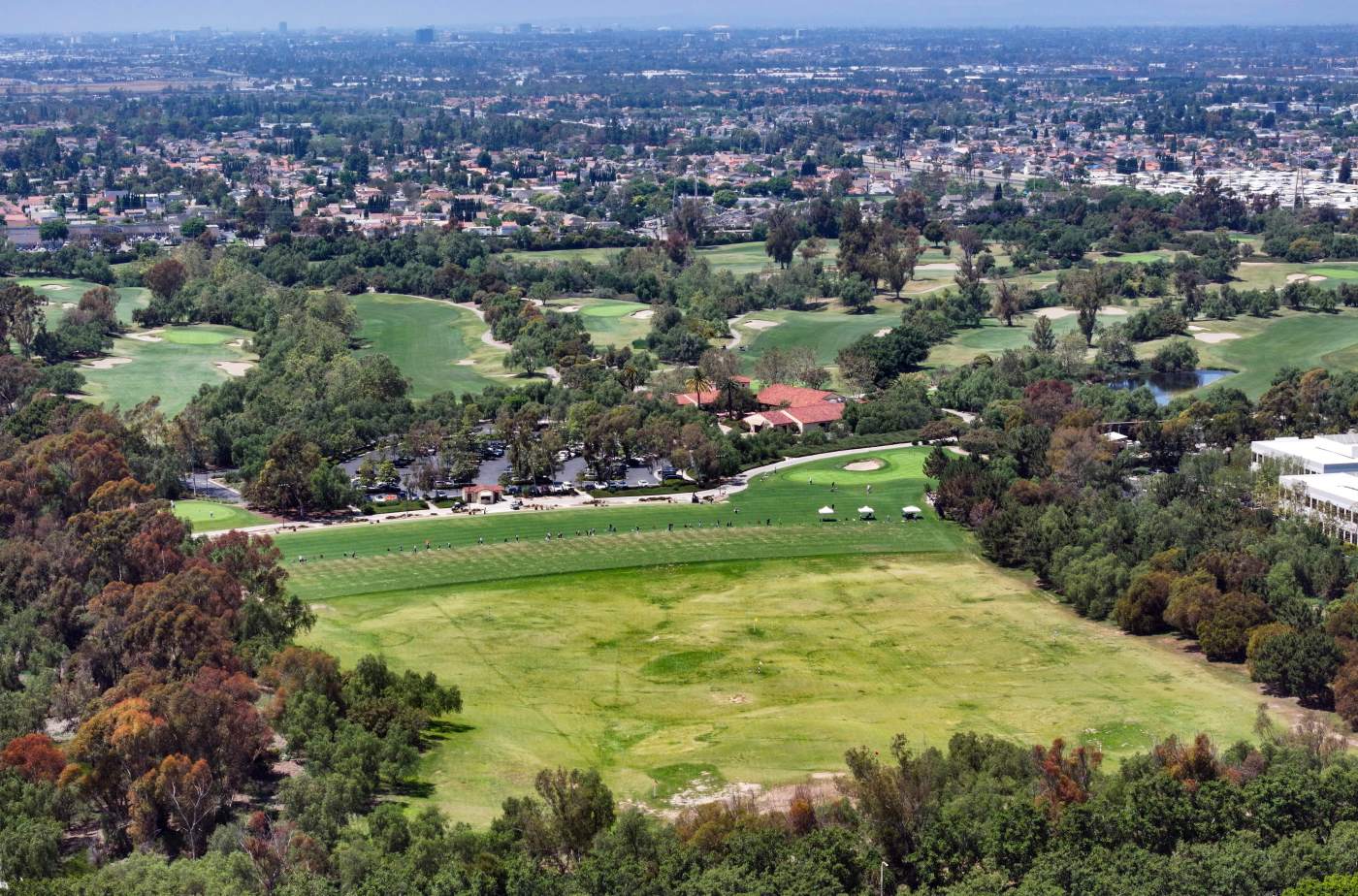The Irvine City Council has decided to delay any ballot measure on the future of the Oak Creek Golf Course until 2026, effectively taking a proposed Nov. 18 special election off the table.
Mayor Larry Agran said the November date was impractical and too costly. The city would face an estimated $2 million bill and residents would be voting days after a likely statewide redistricting measure on Nov. 4.
“We can’t, at this point, put the two together, we’ve missed that window,” Agran said, “and I don’t think it would be a good idea, even if we could do that.”
“It seems patently ridiculous,” he added, “maybe that’s too strong a word, but ridiculous to ask the people of the city of Irvine to be involved in that statewide measure as we all will be, and then to vote again on a very, very important matter on Nov. 18 in a special election.”
At issue is whether the city should allow the Irvine Company to replace the 193-acre golf course with a new residential village that would include 3,100 housing units, a school, parks and other public spaces or preserve the land in its current form as open space. In exchange for redeveloping the golf course, the Irvine Company said it would give the city 315 acres of open space in northern Irvine and give up control of its agricultural operations on another 565 acres of city-owned orchards.
Related: Oak Creek Golf Course vote could get pushed to 2026 as council considers new ballot options
Oak Creek was included in a 1988 voter-approved initiative that designated the golf course — and other areas — as open space. The initiative was designed to preserve open space by allowing development in certain areas in exchange for public ownership of other lands.
While privately owned by the Irvine Company, the golf course has long been considered protected open space under the initiative.
City Attorney Jeff Melching said if the council opts to align the question with the June 2026 primary, ballot wording must be finalized by early March to meet the 88-day statutory deadline.
Councilmembers agreed to continue the discussion at a meeting early next year.
Melching had presented four draft ballot measures related to Irvine’s open space and the Oak Creek Golf Course. Three of the measures focus on whether voter approval would be required before converting specified parks or open space to other uses:
One would require voters to approve all changes to designated open space, but allow an exception for Oak Creek if the city receives 315 acres of replacement open space.
A second would require voter approval for all open space, with no exceptions.
A third would create only the Oak Creek exception without affecting other open space.
The fourth measure would change Oak Creek’s designation from preservation to medium-high-density residential. That approach would trigger a 12- to 18-month environmental review under the California Environmental Quality Act before it could be placed on the ballot.
“So items 1, 2 and 3 really have to do with whether there will be a voter requirement or not. None of them actually change a land-use designation in the general plan. Item 4 changes the general plan land use designation,” Melching said.
In addition, Save Irvine Open Space, a local advocacy group opposing development on the golf course, has proposed a fifth option: asking voters directly if they want to keep Oak Creek designated as preserved open space.
Councilmember Mike Carroll supported delaying the vote, emphasizing that residents should not face back-to-back ballots.
“I 1,000% agree with you that the residents of Irvine can’t receive two paper ballots,” he said to Agran, arguing the city should avoid asking residents to vote on the city measure so soon after a statewide contest.
Councilmember Kathleen Treseder said a regularly scheduled election would make the most sense and asked for clearer ballot language.
“I think it makes more sense to have a ballot initiative aligned with the June primary,” she said.
Councilmembers will revisit the issue next year, which Agran said gives the city flexibility for more analysis and an environmental review “to schedule an appropriate election in 2026,” whether as a standalone special election or aligned with the statewide June primary, or even potentially in November if needed.





